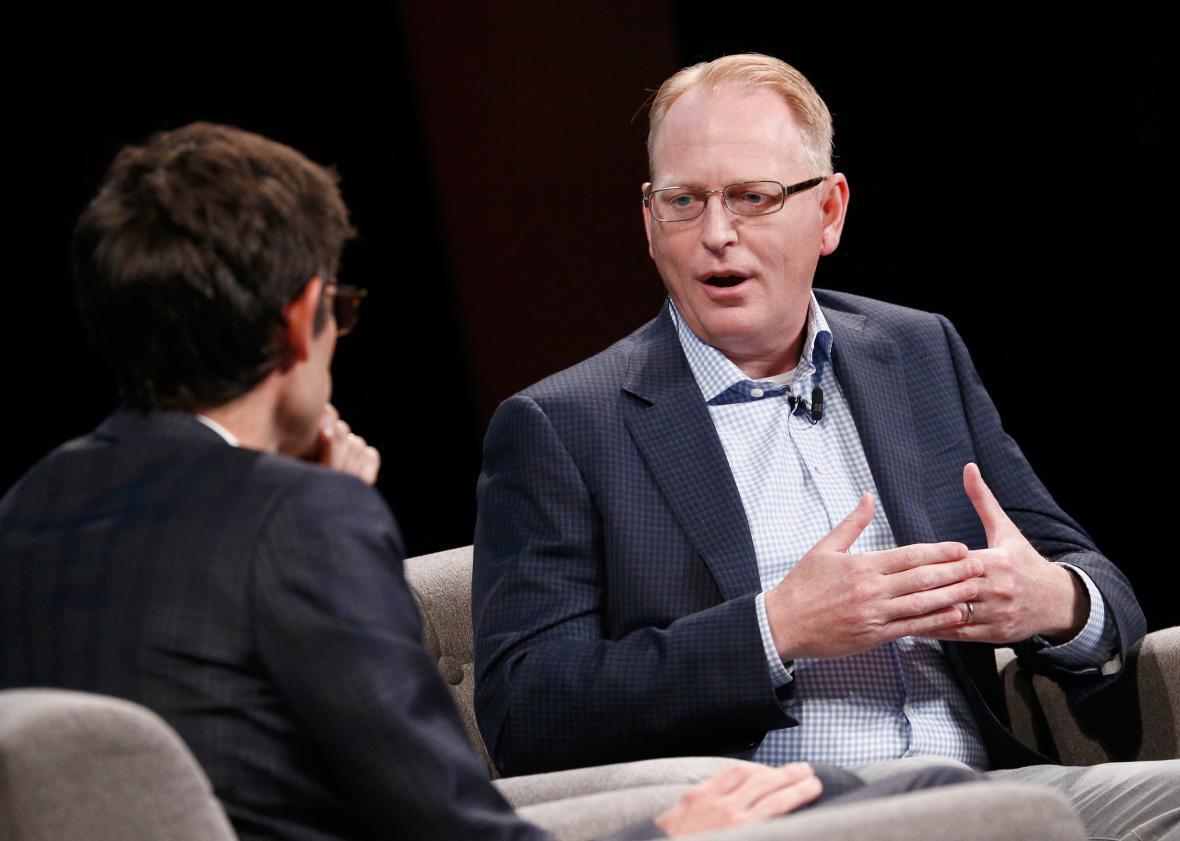Alexa, the voice of Amazon’s Echo, could one day be chatting it up with Siri, her counterpart on the Apple iPhone. At least, that’s something one Amazon executive just indicated he would “hope” to see in the future.
“You should be able to tell ‘Alexa, ask Siri X,’ ” David Limp, Amazon’s senior vice president of devices, told a group of journalists at the Wired Business Conference in New York on Wednesday, USA Today reported. That kind of conversational compatibility could enable users to access both functions’ sets of downloadable capabilities, which Amazon refers to as “skills.”
The prospect of communication between Alexa and Siri is far from idle chatter. When it comes to digital assistants and the Internet of Things, the name of the game is interoperability. Simply put, as Jacob Brogan defined it in Slate last November, interoperability is “the capacity of computers to communicate with one another across distinct networks.” Loosely translated into a market setting, it’s basically the idea that technologies developed by different companies should be compatible with one another to minimize user inconvenience and limit redundancies in product development: Think the ability to use Microsoft Office on an Apple laptop, for example.
Limp’s endorsement of interoperability may reflect pragmatism more than principle. As my colleague Will Oremus wrote in Slate this week, Apple’s HomePod, released Monday, is the company’s “long-anticipated answer to Amazon’s Echo and Google’s Home,” not to mention Microsoft’s Cortana virtual assistant. It’s an amped-up version of all three rival products, though, and is priced to match, retailing at $350 compared with the $180 for the Echo and $110 for Google’s Home. HomePod also comes with Siri fully enabled. And with a glut of artificial voices in the proverbial room, Limp is smart to make the case for interoperability, which helps let user preference and price point—rather than issues of technological compatibility—dictate consumer choices. “When people are starting to spend … hundreds of dollar per speaker, I think generally they’re going to want choice,” Limp said onstage at Wednesday’s conference. Although the Echo remains top of the heap, the HomePod could present “solid competition … in the Christmas run-up this year,” Phone Arena reported Thursday.
Amazon is hardly the first big tech company to push for interoperability. In a 2005 post published on Microsoft’s website, CEO Bill Gates stressed that “a strong commitment to interoperability” was “crucial to success in streamlining business processes, getting closer to customers and partners, or making mergers and acquisitions successful.” Since then, Time observed Wednesday, “tech giants have shown an increasing willingness to allow their devices and software to play nice with others.” In March, Alexa made the jump to the iOS Amazon app, facilitating interoperability with the iPhone, Wired reported at the time. Last month, TechCrunch documented, Google Assistant landed on the Apple devices as well.
But there’s also a long track record of such companies eschewing the principle of interoperability to suit their financial needs. When Google announced that it was nixing the interoperable Google Talk (informally known as Gchat) in favor of the cross-platform Hangouts in 2013, for instance, April Glaser quickly noted in Slate that the company was “reneging on its commitment to interoperability by no longer allowing users to chat with people connected to other instant messaging services.”
For both Amazon and the technology sector writ large, interoperability remains an open question. Limp himself threw some cold water on the possibility of a Amazon-Apple axis of AI almost immediately after suggesting it, telling Wired conferencegoers, “If Apple or Google want to come calling, my phone number is out there, they can call. … I don’t know if I can envision it but I hope that will happen on behalf of customers.” But as Brogan argued in Slate last year, the benefits of “technical interoperability” are clear. The principle “has allowed the internet to connect knowledge, people, and resources on a global scale, generating unprecedented benefits for humankind,” he wrote. And if Alexa and Siri ever do get to talking, theirs would be a conversation well worth listening to.
